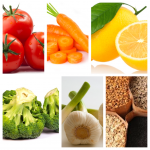 Cancer—the word, itself, terrifies me. No one is untouched, unscathed or unaffected by cancer. It’s so insidiously pervasive that it seems like everyone falls into one of 3 categories: had it, has it, or will get it. Is it only a matter of where, when and what stage? I know that sounds so pessimistic and hopeless, doesn’t it? It seems so different from heart disease—we know that we can do so much to prevent that, if we would just stop eating crap and exercise more, right? And we can have simple, non-invasive tests to tell us if we have heart disease and then we can try to do all the right things to lower our risk! But cancer—people don’t feel that way about cancer. To a large extent, it seems that people feel fatalist about cancer—haven’t you heard numerous times, “if you’re gonna get it, you’re gonna get it.”
Cancer—the word, itself, terrifies me. No one is untouched, unscathed or unaffected by cancer. It’s so insidiously pervasive that it seems like everyone falls into one of 3 categories: had it, has it, or will get it. Is it only a matter of where, when and what stage? I know that sounds so pessimistic and hopeless, doesn’t it? It seems so different from heart disease—we know that we can do so much to prevent that, if we would just stop eating crap and exercise more, right? And we can have simple, non-invasive tests to tell us if we have heart disease and then we can try to do all the right things to lower our risk! But cancer—people don’t feel that way about cancer. To a large extent, it seems that people feel fatalist about cancer—haven’t you heard numerous times, “if you’re gonna get it, you’re gonna get it.”
fatalism: acceptance of the belief that all events are predetermined and inevitable
Are you fatalistic about cancer? Do you think it’s predetermined and inevitable and a fact of life? Or a spin of the roulette wheel? Do most people feel that their only true prevention for cancer is early detection (which isn’t really prevention) and to hope and pray, real hard? Maybe we feel powerless about cancer because we live in a toxic environment…Maybe because we are told that it’s mostly genetic…Maybe because we all have cancer cells in our bodies and it takes years sometimes to find out that they’ve been secretly growing and plotting to take us down.
If a doctor told you that you should eat certain foods to help protect you against cancer, would you listen? Would you say, “just tell me what to do and I’ll do it!” or would you question the veracity of the entire concept? What if teams of doctors, researchers and medical studies told you, would that be convincing? The only guarantee in life is that there are no guarantees in life. I know that and you know that, but I think that there is validity in the following information and I hope that you do, too. It’s very true that it’s complicated. Incorporating these foods into your diet, and eliminating others, in addition to following recommendations by doctors and cancer experts, is a proactive step beyond hope and prayer in protecting your body.
Experts believe that one-third of all cancers can be prevented by what you eat. For decades, public health researchers around the world have been studying how certain foods lower the risk of different cancers.
Dr. Oz has created a “Food Rainbow to Protect Against Cancer”
Fight: Pancreatic and ovarian cancers
Tomatoes have been shown to be protective against ovarian cancer in a study of 13,000 California women. Eating a half-cup of tomatoes five or more times a week may reduce your risk of ovarian cancer by up to 60%.
Another Canadian study connected eating tomatoes to a reduced risk of pancreatic cancer. This pancreatic protective factor can be attributed to lycopene, which is richly abundant in tomatoes and other foods like red peppers and red berries. Try to eat one serving of these red foods at least once a day.
The skin of red grapes is a particularly rich source of an antioxidant called resveratrol. According to the National Cancer Institute, resveratrol may be useful in keeping cancer from beginning or spreading.
Fight: Stomach and ovarian cancers
Beta-carotene, responsible for the orange color in carrots, pumpkins, squash and sweet potatoes, has been shown to exhibit anti-carcinogenic effects on stomach cancer by promoting cancer cell death.
Caffeic acid, an organic compound found in sweet potatoes and carrots, has been shown to slow down breast cancer growth, and even promote cell death as well. Consume these orange foods at least twice a week.
Turmeric, this orange-colored spice, a staple in Indian curries, contains an ingredient called curcumin (not the same as cumin) that might be useful in reducing cancer risk. According to the American Cancer Society, curcumin can inhibit some kinds of cancer cells in laboratory studies and slow the spread of cancer or shrink tumors in some animals.
Fight: Stomach and esophageal cancers
Citrus fruits, like lemons, tangerines and grapefruit, and papaya are rich in vitamin C, a powerful antioxidant that has been shown to be protective against almost all cancers, especially stomach cancer, throat and mouth cancers, and colon cancers. These foods are also rich in flavonoids, which inhibit tumor cell growth and detoxify against harmful substances. Add these fruits to your diet at least once a day.
Fight: Ovarian, breast and lung cancers
There is abundant evidence that suggests eating cruciferous vegetables, like kale, endive, bok choy, cauliflower, broccoli and cabbage, is associated with a lower risk of stomach, ovarian, breast, colorectal, and lung cancers. These veggies are rich in glucosinolates, a compound which protects against cancer development and growth. They are also rich in the vitamin K that you need to help prevent diabetes, which will reduce your pancreatic cancer risk. Eat these foods at least twice a day to help cut your cancer risk.
Studies of more than 62,000 women in the Netherlands have found those who ate endive had a 75% reduction in the risk of ovarian cancer. Endive contains a naturally occurring cancer fighter called kaempferol (also found in spinach, kale and broccoli). Researchers have discovered that when ovarian cancer cells are exposed to kaempferol, they die.
Artichokes contain 3 different cancer-fighting molecules. Enjoy ¼ cup of hearts per day.
Fight: Stomach, ovarian and colon cancers
Mushrooms, garlic, onions, shallots and chives (which belong to the onion family) belong to the allium vegetable category and have been connected to lower levels of stomach cancer. Allicin, the active compound in garlic, has antimicrobial and antioxidant effects. Allicin is released when garlic is chopped, crushed or chewed. To maximize your benefit, wait about 10 minutes before cooking garlic to allow the allicin to form.
The polyphenols found in onions have anti-cancer effects on colon cancer cell lines. Onions also contain natural cancer fighters like apigenin, anthocyanin, myricetin, and quercetin. Red onions are about 60% more potent than yellow or white onions, in terms of the amounts of cancer fighters. They also have more flavor. But don’t boil onions; boiling them reduces their cancer-fighting properties by about 30%. The best way to eat them is raw or sautéed with a little oil in a pan. Women who frequently consumed these foods were found to have lower rates of ovarian cancer. Mushrooms are high in vitamin D, which also helps reduce ovarian cancer risk. Add these neutral-colored foods to your diet at least once a day.
Some beans, particularly pinto and red kidney beans, are outstanding sources of antioxidants and should be included in your anti-cancer diet. Beans also contain fiber and eating a high-fiber diet may also help reduce your risk of cancer, according to the American Cancer Society. A large study revealed that women who ate a high fiber diet (38-77 grams/day) had a greater than 20% reduction in their risk of ovarian cancer compared to those with low fiber intake. Fiber lowers the production of sex hormones, which then decreases one’s risk of ovarian cancer.
 Tea contains antioxidants called catechins, which may help prevent cancer in a variety of ways, including keeping free radicals from damaging cells. Lab studies have found that catechins in tea can shrink tumors and reduce tumor cell growth. Some — but not all — studies in humans have also linked drinking tea to a lower risk of cancer. Both green and black teas contain catechins, but you’ll get more antioxidants from green tea so you may want to consider a cup or more in your anti-cancer diet.
Tea contains antioxidants called catechins, which may help prevent cancer in a variety of ways, including keeping free radicals from damaging cells. Lab studies have found that catechins in tea can shrink tumors and reduce tumor cell growth. Some — but not all — studies in humans have also linked drinking tea to a lower risk of cancer. Both green and black teas contain catechins, but you’ll get more antioxidants from green tea so you may want to consider a cup or more in your anti-cancer diet.
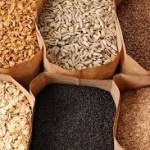 Whole grains contain many components that might lower your risk of cancer, including fiber and antioxidants. A large study including nearly half a million people found that eating more whole grains might lower the risk of colorectal cancer, making them a top item in the category of foods to fight cancer. Oatmeal, barley, brown rice, and whole-wheat bread and pasta are all examples of whole grains.
Whole grains contain many components that might lower your risk of cancer, including fiber and antioxidants. A large study including nearly half a million people found that eating more whole grains might lower the risk of colorectal cancer, making them a top item in the category of foods to fight cancer. Oatmeal, barley, brown rice, and whole-wheat bread and pasta are all examples of whole grains.
Important Changes to Make in Your Diet to Protect Against Cancer:
Reduce Alcohol: 1 drink per day for women, 2 drinks per day for men
Reduce: foods high in salt and sugar & processed foods
Eliminate Dairy: studies have shown that 3 servings of dairy per day translates into a 20% increased risk for ovarian cancer
Reduce Soda: as little as 2 sodas a week can raise your risk of pancreatic cancer by 87%
Also, did you know:
Women who are 25 or more pounds overweight have a higher risk of ovarian cancer. Obese women have a 30% higher risk of ovarian cancer compared to those with a healthy weight.
 Has your doctor mentioned to you that certain foods can protect you against certain cancers? Make these changes now or make them gradually—it’s not as hard as you think. This is actually something we CAN do! Vegan American Princess can help!
Has your doctor mentioned to you that certain foods can protect you against certain cancers? Make these changes now or make them gradually—it’s not as hard as you think. This is actually something we CAN do! Vegan American Princess can help!
For more information:
Dr. Oz Food Rainbow to Protect against Cancer
Physicians Committee for Responsible Medicine
xox Ellen
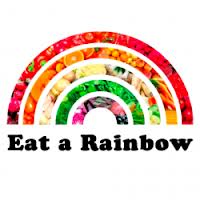
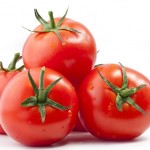
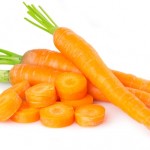
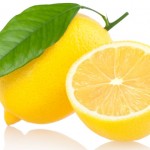
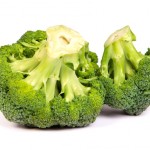
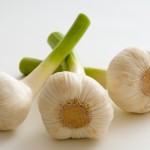







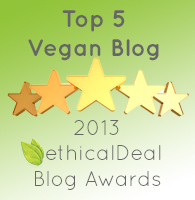
I noticed that meat was not included in the list. Sounds like a Vegan diet to me.
You are correct!
Debby,
Thanks for the helpful hints. As far as meat goes…was it left off of the list by
Dr. Oz, because it is linked to cancer? Or linked to heart damage? Or could
it be to that it is still a matter of quantity & quality, and issues similar to that,
before such a broad blanket statement can be made? For instance: how the
meat is cooked, what type & grade of meat we’re discussing, also the amount
and frequency in which it is consumed? So many wavetables surround this
part of the human diet. Don’t you agree?
Sincerely,
Carolyn
The science is overwhelming that eating animal proteins is unhealthy. The antioxidants found in fruits & vegetables help prevent cancer, as set forth in this post. There are many books on the subject which we suggest reading including Prevent & Reverse Heart Disease by Dr. Caldwell Esselstyn, The China Study by Dr, T.Colin Campbell & The Starch Solution by Dr. John McDougall. You will find the science-based answers in these informative books!
Thanks you for allowing me to comment.
You’re welcome! Thanks for reading!
Stay tuned for my follow up blog explaining what not to eat! It’s not enough to eat all the right things if you’re also eating all the wrong things!